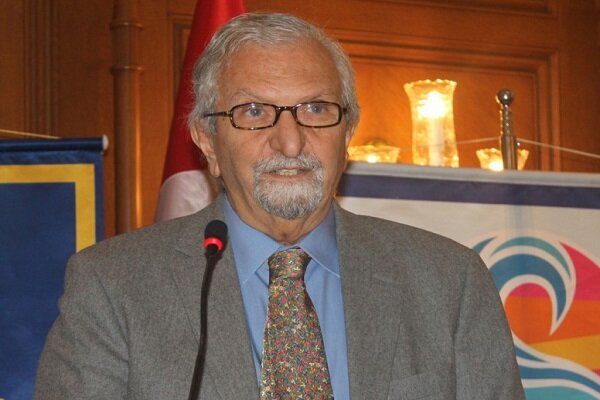TEHRAN, October 16 (MNA) – Deploying the THAAD system in the occupied lands operated by US personnel means Washington’s direct and more involvement in the regional tensions that can drive the region to wider confrontations and instability.The THAAD is a critical part of the US military’s layered air defense systems.
It is capable of intercepting ballistic missiles at ranges of 150 to 200 kilometers and with a near-perfect success rate in testing.
It uses a hit-to-kill approach, meaning it relies on the kinetic energy of a direct impact rather than explosives to destroy an incoming missile.
Following the defeat of Israel's anti-missile defense system after Iran’s successful “True Promise 2 Operation” on October 1 Iran targeted many Israeli military centers successfully with hundreds of ballistic missiles, the US has decided to deploy its THAAD system to support Tel Aviv.
To this end, Pentagon Press Secretary Major General Patrick Ryder confirmed the deployment of THAAD on Sunday, clarifying that the system will be used to bolster Israel’s air defenses.
An advance team of US military personnel and initial components necessary to operate the THAAD battery arrived in the occupied lands on Monday.
According to Ryder, over the coming days, additional US military personnel and THAAD battery components will continue to arrive in Israel, and the battery will be fully operational in the near future, he added.
While the US has repeatedly claimed that it is after peace and ceasefire in the region, it has always been backing Israel’s aggressions and destabilizing measures in the region.
According to many experts, deploying the THAAD system in the occupied lands where the US personnel will operate means Washington’s direct and more involvement in the tensions in the region that can drive the region to wider confrontations and instability contrary to the US claims.


Its ability to intercept missiles at short, medium, and intermediate ranges indicates that the US will play a more active role in Israel's defense in the event of a third missile attack from Iran.
This move is intended to serve as a deterrent against Iran.” She further noted, “I believe that the US is gearing up for a new diplomatic approach that will prioritize nuclear negotiations with Iran.
While these efforts may not be publicly visible during the current election season, I anticipate that both Harris and Trump's administrations will pursue diplomacy with Iran.
If Trump is re-elected, this strategy may involve increased pressure on Iran, but the overarching goal remains the same.” Alagoz added, “I view the deployment of THAAD systems in Israel as a reflection of the US's commitment to deterrence.”


While the US has stated that the deployment is part of its commitment to Israel's security, it is possible that sending THAAD systems could be perceived as a provocative move by other regional actors, potentially escalating tensions." Zakharov added, "Critics argue that since THAAD systems have only demonstrated successful intercepts in controlled environments, their practical effectiveness in real-world scenarios remains uncertain.
Consequently, this deployment might be seen as more of a symbolic gesture rather than a substantive improvement in regional defense capabilities.
Furthermore, some experts speculate that the US might be using this as an opportunity to offload expensive equipment that is not deemed essential for its own national defense needs.
Overall, the implications of this decision on regional dynamics will depend on the reactions and perceptions of key players in the Middle East." Interview by Payman Yazdani and Sahar Dadjoo

